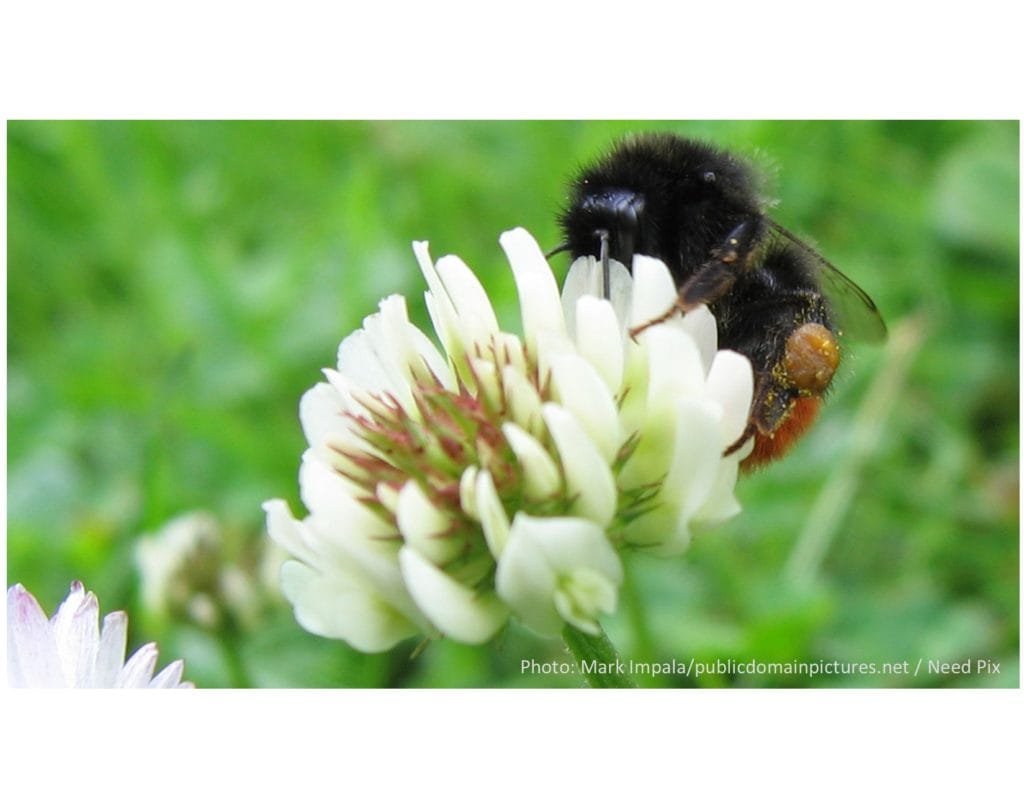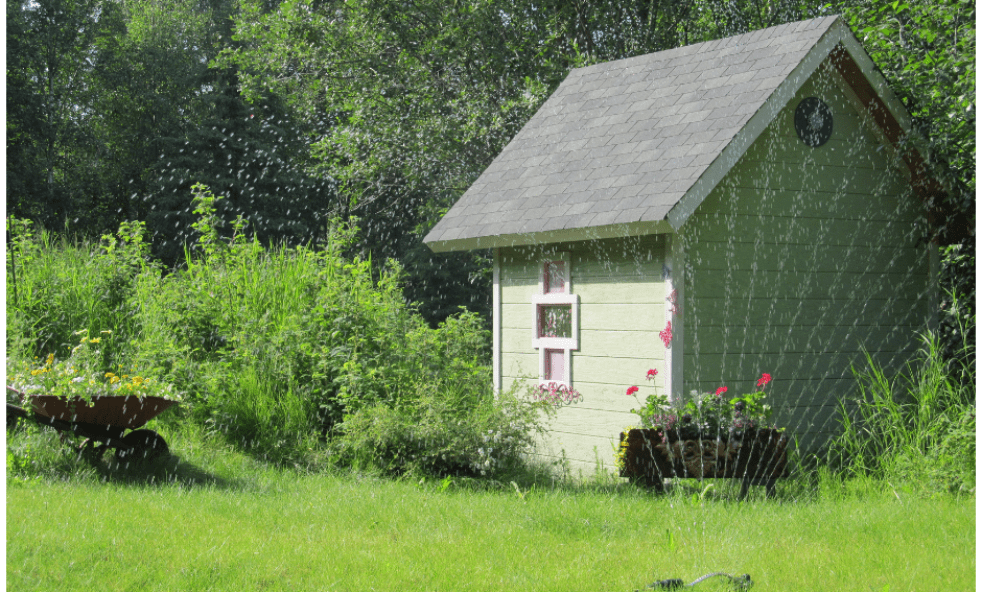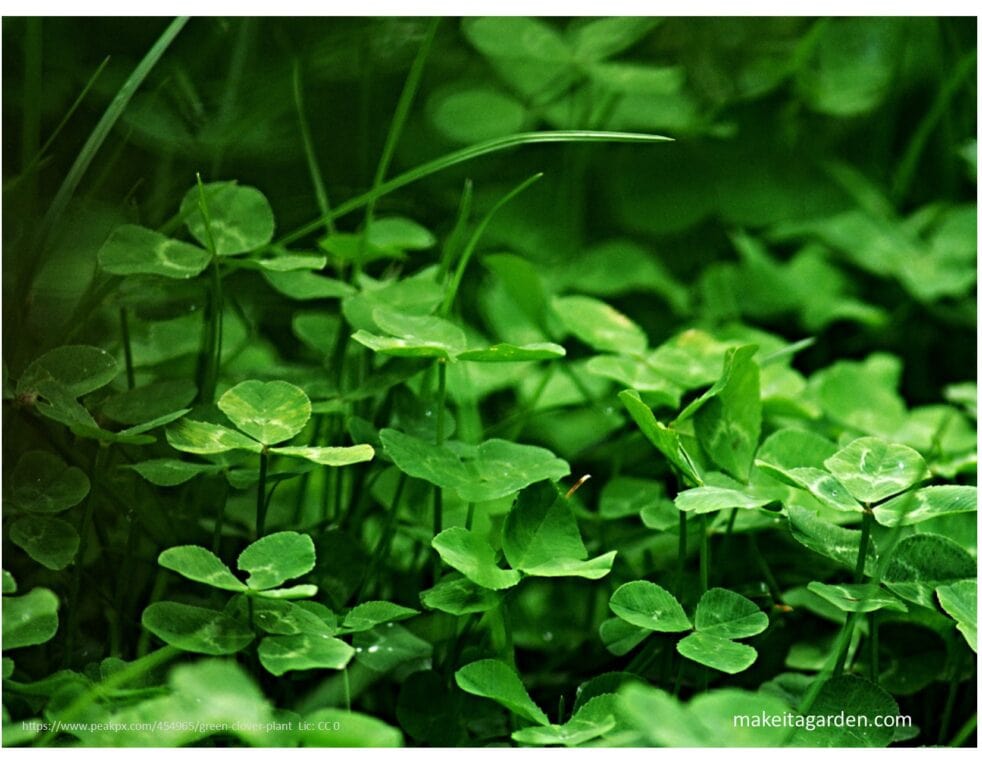
Clover Lawns: new ideas
“Ugh!” you might say. “I work hard to get rid of clover!” You might wonder why anyone would want a “weed” like clover mixed in with their lawn, let alone a pure clover lawn. Good question!
But as crazy as it might seem, there’s been a lot of interest in clover groundcovers in recent years. You might even say it’s gaining ground if you’ll pardon the pun. Certainly, there are positives from an environmental perspective. But there are also some folks who simply yearn for a lower maintenance lawn, while others are genuinely intrigued by the look of clover.
At Make it a Garden, we don’t get embroiled in arguments for or against grass lawns. Instead, we strive to bring you fresh new ideas in gardening and backyard decor. We love unique trends and helping you find solutions to problems. As for the natural landscaping look, we just think it’s beautiful!
Some background behind clover lawns
There are several different varieties of clover. The one we’re discussing here is commonly known as “micro-clover” (trifolium repens), a mini version of Dutch white clover. Its soft stems make it cushy under bare feet. And it blends in well with grass, too. Clover fills in the gaps to provide a solid sea of green for a pleasing aesthetic.
For a few generations now, we’ve been conditioned to think of clover as a “weed”. But that wasn’t always the case. Prior to 1950, lawn seed was commonly mixed with up to 5% clover. (source: Kelly Burke, thespruce.com) That was the norm for lawns at the time.
Farmers intentionally sowed clover because it grabs high nitrogen from the air and transports it into the soil, which benefits grass. Some studies say up to two pounds of nitrogen per 1,000 square feet. It’s also a natural weed control. Clover chokes out other weeds and prevents them from taking hold.
Chemical weed retardants first began appearing on the market in the 1950’s and 60’s as suburban neighborhoods were getting established. These chemicals irradicated broad-leafed weeds including clover, which by then was also considered an ‘un-desireable’.
It’s really quite fascinating. When you live long enough, you’ll see old ideas come back around. If you’re interested in a quick history on the use of clover in lawns, here’s a great, easy-to-read article from lawnstarter.com.
Some pros and cons of clover lawns
Gradually, pure grass seed became favored right along with those lush, deep emerald green carpets that we strive so hard to keep up. And that’s where the pros and cons of alternative ground covers come in.
We all know how much effort goes into lawn maintenance. There’s a whole industry devoted to nothing but lawns. It’s not just kids earning a buck mowing the neighbor’s lawn. Some people make a reasonable living providing lawn care services.
But it can get expensive. A nice lawn requires a lot of water. Sprinklers, timers and hoses. Add in fertilizer for the spring and fall, weed chemicals, oil and gas for the mower, blade sharpening or repair work…it all adds up!

What’s so good about Clover?
When it comes to a lower maintenance lawn, clover can, admittedly, be a strong selling point. It only grows to a certain height and then stops, which means less mowing. The white clover (micro-clover) still produces a flower, although fewer flowers than other varieties of clover. Flowers can be pretty, and they smell nice, but if you don’t like the look, just mow ’em down right before blooming.
Here are some other nice qualities:
- Less labor intensive, easier to keep up
- Less wear and tear on your mower
- Drought-resistant. Remains green through short drought periods
- Grows in poor soil conditions
- Provides nitrogen transfer which is healthier for soil
- Blooms are helpful to honeybees and other pollinators. [Note:honey bees are generally docile and do not tend to sting when not provoked and away from the hive]
- Clover seed is less expensive than grass seed
- One of the first plants to green up in the Spring
- Doesn’t require herbicides or pesticides
- Resists pet urine
- Resistant to blight and mildew
- Adds interesting texture to the landscape
Some downsides to using clover
There’s no question that clover is an easy keeper. However, when researching for this article, I ran across some other factors to think about if you’re considering clover as a groundcover.
For instance, other experts disagree somewhat on the water requirements. Some suggest clover needs as much or more water than grass lawns. As for being drought resistant, that part is true. But clover doesn’t do all that well in super hot, dry climates, preferring shade or partly shady conditions.
Also, clover is a short-lived perennial. As such, it needs to be re-seeded every few years or so.
Adding clover to the lawn
It’s easy to add clover seed to an existing lawn. There’s no need to rip out the grass.
If you’ve got some bare patches, or an area with poor soils where you’d rather have a little green, clover might just do the trick. If you’d like to experiment first, seed a small patch in the backyard and see what you think.
TIP: When adding clover to an existing lawn, make sure its clearly identified as white clover or dutch clover so you don’t get one of the taller cultivars.
Join our community of garden and art lovers! Scroll down just a bit to sign up.
Final thoughts
We’re excited about the new ideas for ground covers on the horizon. We hope you’ll discover what’s so appealing about clover as well as some of the other options out there. Inviting a touch of nature a little closer to home will yield some unique and beautiful results in landscaping.
Are we ready to leave the grass behind? No, I don’t think that will ever happen. Each person has a valid reason for their preferences. But for those who are open to trying something different, clover seems to be the most worthwhile.
Related posts you may enjoy
Natural Landscaping captivates with Beauty & Interest
New role of moss in the Landscape
How to keep weeds down for beds and borders
The form you have selected does not exist.


Thanks for the shoutout, Kris. I’m Daniel Ray, the editor over at LawnStarter. And yes, clover is an old idea that has come back around. It’s a shame the way that chemical manufacturers rebranded clover in order to sell herbicides, downgrading it from a welcome plant to a weed. My joke is that it’s the most malicious plant re-branding since the American Revolution, when we all decided to shun tea.
Mr. Ray, thank you so kindly for taking the time to respond! You must know how it makes a blogger’s day! I really care about the sources that I quote and want to link to quality content. I believe the best way to influence people is to help them re-think their ground covers and point to a beauty and benefit they hadn’t thought of before. I’m certainly re-thinking things myself as I create the outdoor spaces around my home. Thanks again!